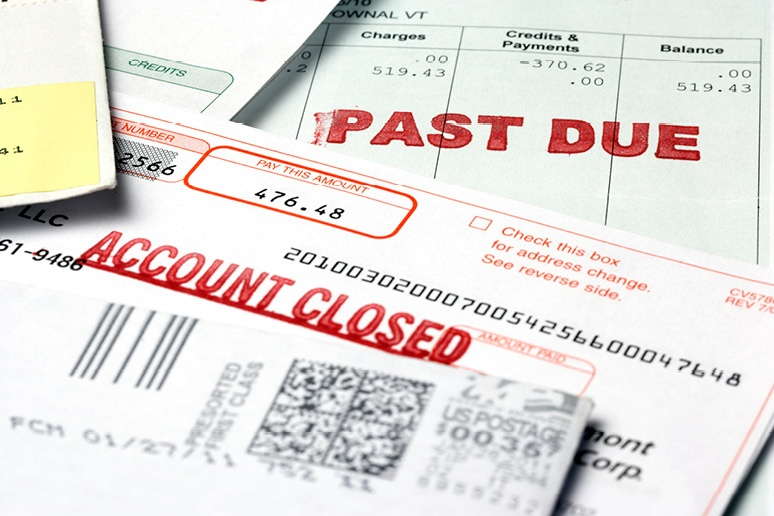If you’re in over your head with debt, and it’s gotten to the point where you can’t make the minimum payments on everything, then it’s time to call a lawyer and discuss bankruptcy. As an individual, married couple, or small business, you may be eligible for Chapter 7 or Chapter 13 bankruptcy.
Both Chapter 7 and Chapter 13 bankruptcies can help individuals overcome financially difficult times. However, they are two very different processes. “These bankruptcies do different things,” says attorney Randy J. Creswell of Creswell Law. “Whether you are an individual or a company, if you file Chapter 7, you are liquidating. If you file Chapter 13, which is for people, not companies, it is a reorganization.”
As with any legal issue, it's important you speak with a qualified attorney to best understand all of your options, and how bankruptcy might affect your individual situation.
How are Chapter 7 and Chapter 13 bankruptcies different?
Chapter 7 bankruptcy is the legal process that allows you to wipe your financial slate clean. “You are starting over and getting a fresh start in Chapter 7,” Creswell says. “You have realized you can’t go on—your debt is unsustainable. If you are a business, the business isn’t going to survive."
To be eligible for this type of bankruptcy, you must have little to no disposable income and pass what is known as the Chapter 7 “means test.” You must complete mandatory credit counseling, after which you may file a bankruptcy petition. Your requirement to make monthly payments toward most, if not all of your debt ends, and you get a bankruptcy trustee. This person is in charge of administering the bankruptcy estate. In most cases, they will liquidate your non-exempt assets, which could include your house, to repay your creditors as much as possible. You keep exempt assets only. Then, if you receive a Chapter 7 Discharge Order from the court, most of your debts are discharged.
Some debts cannot be discharged in bankruptcy, including most taxes, child support, and student loans. However, you may be able to get out from under a mortgage, credit card debt, auto loans, personal loans, and medical expenses.
The Chapter 13 bankruptcy process reorganizes your debts into manageable portions that you pay over 3 to 5 years under court supervision.
When you are not eligible for Chapter 7 because you make too much money, you may still be eligible for Chapter 13. Although, this proceeding has eligibility requirements too. You must owe less than $394,725 in unsecured debts and less than $1,184,200 in secured debts.
You must complete mandatory credit counseling before you file for bankruptcy. Once you file, a Chapter 13 trustee is appointed, and you must develop your payment plan to pay down your debts. After you pay all of your necessities each month, your disposable income will go toward paying your debts. If your income changes during this process, you are required to rework your payment plan with the trustee. Once you complete the plan, the rest of your debts are discharged, except for those that cannot be discharged in bankruptcy.
Living under a strict payment plan for up to 5 years can be challenging. However, Chapter 13 bankruptcy allows you to retain more of your assets. Instead of liquidating your home and vehicles in order to pay off creditors, you are allowed to make up late payments.
“In many instances of a Chapter 13, a person is trying to save a primary residence,” Creswell says. “After losing a job, a medical event, or a divorce, an individual may get behind on their mortgage payments. When they can’t catch up, Chapter 13 can cure the arrearage on the mortgage and save their house.”
Deciding which type of bankruptcy to file depends on more than eligibility
You may be eligible for both Chapter 7 and Chapter 13 bankruptcy, and in this situation, Creswell recommends you think carefully about what you hope to achieve through the bankruptcy.
“When you are trying to get rid of a lot of unsecured debt when you are current on your home mortgage and auto loans, then you would likely file a Chapter 7,” Creswell says. “You can keep your home and vehicles by agreeing to enter into reaffirmation agreements with those secured creditors, and in a few months, you are rid of the credit card or other unsecured debt.”
However, Chapter 7 bankruptcy might not give you the outcome you want. If you are going through a divorce, then the difference in debts you may have discharged in a Chapter 7 versus 13 may matter a great deal. In some cases, depending on your particular circumstances, you and your spouse may agree to jointly file for Chapter 7 or 13 bankruptcy because it is better for you financially than to exclude your soon-to-be-ex-spouse from the process.
Additionally, you should think about your likely financial situation after the bankruptcy. Once you go through Chapter 7 bankruptcy, you cannot use Chapter 7 again for eight years. When you are finished with the bankruptcy process, you will need a financial plan to avoid accruing unmanageable debt again.
For a more in-depth discussion of Chapter 7 and 13 bankruptcy and which may be right for you, contact a bankruptcy attorney near you.
 By Victoria Langley,
By Victoria Langley, 

